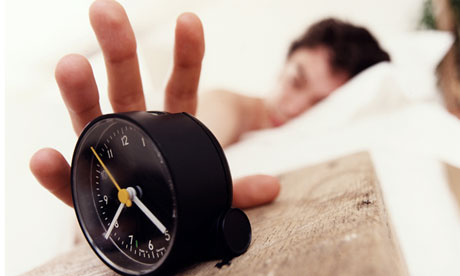By Ainsley Smith
This Sunday, many Canadians will be turning their clocks forward one hour as Daylight Savings Time officially begins.
At 2:00 a.m. Eastern Standard Time (EST), clocks officially springing forward, saying goodbye to an hour of sleep, but in return saying hello to those longer, brighter evenings.
Most people will adjust to the time change within a day or two, even if it means an initial grouchy breakfast on Sunday.
But for others, the switch can be much harder.
Dr. Adam Moscovich, from the National Sleep Foundation told Humber News that Daylight Savings Time affects most individuals.
Our body-clock also gets shifted in relation to our sleep schedule by one hour.
“Naturally for most people, they get adjusted within a few days and return back to their normal routines. However, a very significant percentage of the population, the one hour of sleep loss can result in significant problems such as sleep deprivation, or sleep quality, and this one hour change acts as the straw that breaks the camels back,” Mosovich said.
“The consequences of sleep loss particularly during Daylight Savings Time include worsened moods, difficulty concentrating, higher stress, increases in traffic and machine accidents, and poorer work performance,” the U.S. based Better Sleep Council said on its website.
If an individual does suffer from an acute sleep problem, Moscovich said that exercising common sense behavioral measures can be very helpful to ensuring they have a proper sleep.
Suggestions for people trying to have better sleep:
- Relax and unwind before bedtime.
- Maintain a certain level of physical activity.
- Reduce or eliminate all things that have a negative impact on the body: caffeine, alcohol, and cigarettes.
- Maintaining a sleep routine is also very important.
“It is vital to know that you cannot be shifting your sleep schedule all over the place, which commonly happens with college students as they are studying for exams and cramming late into the night,” Moscovich said.
Over time, the loss of both hours and quality of sleep can make a huge impact on the body, which can result in aches and body pains, and a variety of sleep disorders, said Moscovich.
“If you don’t deal with sleep disorders early and treat them appropriately, it can result in a vicious cycle that can affect you for the rest of your life,” Moscovich said.
“Statistics show that the Monday following the change of clocks, the accident rate on Canadian highways goes up by 7 per cent. Drivers need to ensure that they drive with extreme caution if they feel like they are feeling the effects from the change of the clocks,” Moscovich said.
Another way to avoid negative effects from the change is working or reading under bright lights an hour before sleep to help the body adjust.
Moscovich also recommended that individuals should prepare their bodies for the time change by going to bed one hour earlier.
The average amount of required sleep:
- Adults should aim for seven hours of sleep a night.
- Young adults and teenagers require 9-9.5 hours a night.
“It’s not only the number of hours of sleep that is important, but the quality of sleep is just as crucial,” Moscovich said.
“Sleep is a crucial part of our physiological, psychological and educational makeup. We cannot ignore sleeping, as we need to take advantage of it while we can, or our bodies will pay the price.”



